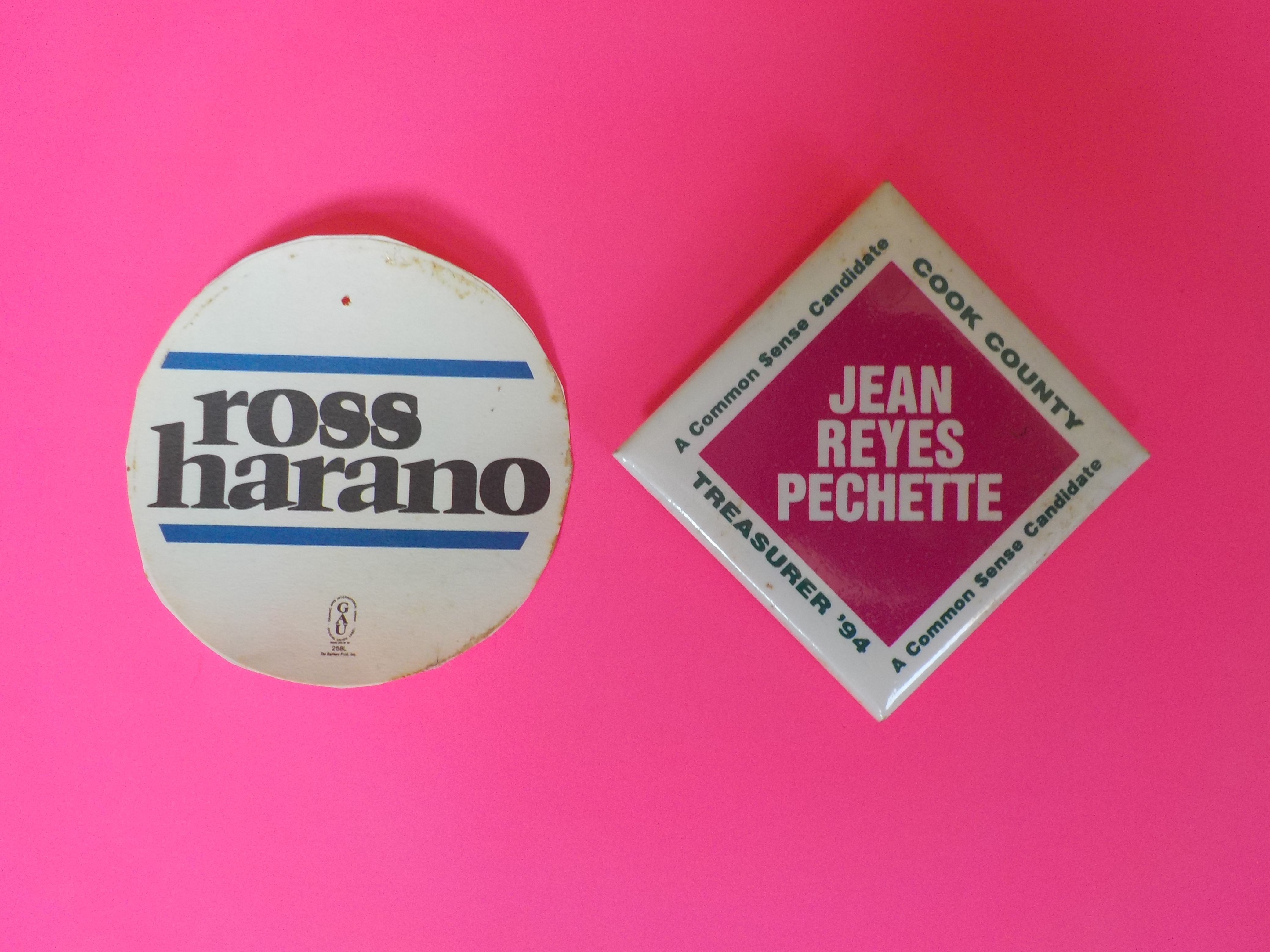
In 1978, Ross Harano was the first Asian American to run a serious Chicago Aldermanic (losing by 600 votes to another trailblazer, Marian Volini). Her '94 bid for Cook County Treasurer fell short, but Republican Jean Reyes Pechette had a cool diamond-shaped button.
This author is not on Facebook, but longtime Asian American campaign activist Selma D’Souza is and she posted this on Illinois Primary Election Night 2016:
“I have waited for this day for almost 20 years and there were times I never thought I'd see it, so bear with me...because tonight is historical! Congratulations to Theresa Mah, Josina Morita, Raja Krishnamoorthi and Tammy Duckworth!!! I'm so proud of all of you, and the Asian American community couldn't have found better representatives in public office. I never thought I'd see four Asian Americans win on the same day at the Federal, State and Countywide levels. It is awesome!!! After the late Judge Sandra Otaka won in 2002, we waited a long time for Alderman Ameya Pawar and U.S. Rep Tammy Duckworth to win elections.”
Selma nailed it. The maturation of Illinois Asian American political clout has been exciting to see. Unlike other immigrant groups, Asian Americans here shared few common languages, food or political traditions. Some were recent arrivals - often with strongly anti-Communist beliefs - while some had roots in Illinois going back a century. Folks were all over: Devon, Chinatown, Albany Park, Argyle. Skokie, Urbana, Bolingbrook, Glendale Heights, Elgin.
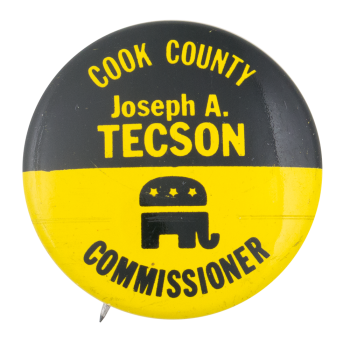 Joe Tecson button courtesy of Busy Beaver Museum, Chicago
Joe Tecson button courtesy of Busy Beaver Museum, Chicago
Pioneering candidates included attorney Joe Tecson (a Republican of Filipino descent) who was a 1970 Con Con delegate and won a 1977 Cook County Board race. In 1978, Ross Harano ran the first serious Chicago City Council race (losing to another trailblazer, Marian Volini). Others gave it a go (Jon Lee Bingham for State Rep, Paul Park for U.S. Senate, municipal candidates in the north suburbs).
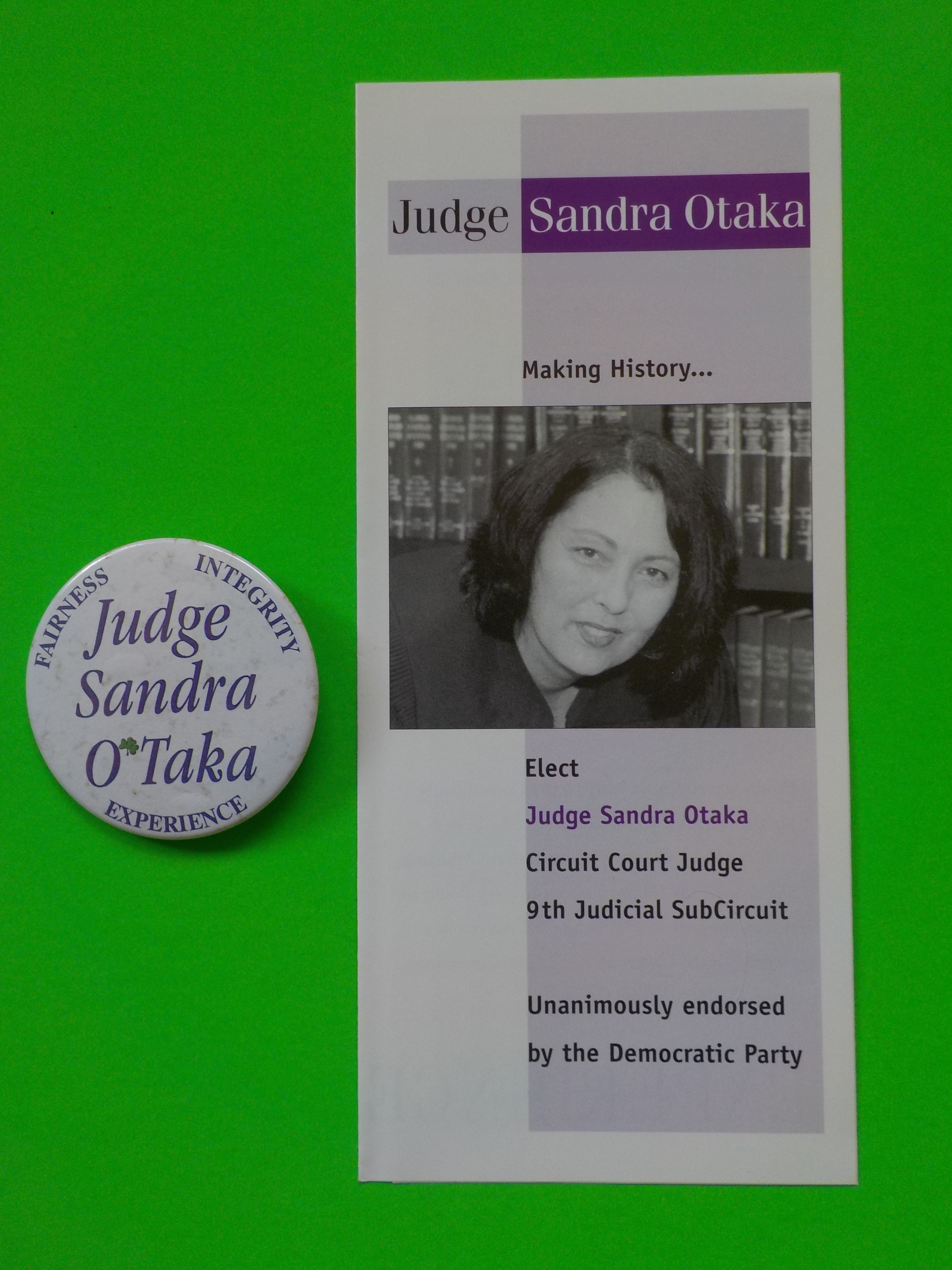
Sandra Otaka’s ’02 race for Cook County Judge was a breakthrough. (Judge Otaka - whose mom and grandparents were interred in World War II - died way too young in 2009.)
Political junkies speak lovingly of watershed campaigns which spawn other campaigns (Walker ’72, Simon ‘84, Harold ’87). For some Asian Americans, Otaka was such a landmark crusade. Old war-horses worked with a new generation of activists and future stars, a multi-ethnic, multi-generational stew, amazingly free of squabbles. The candidate played it just right, making nice with both the Machine and Peoples' Republic of Rogers Park. A 9-language GOTV phonebank! (FULL DISCLOSURE: This author was Otaka’s paid advisor and spent all of Sept. 11, 2001 with her, the Campaign Chair and Jeffrey, eating pizza, doing the campaign budget with one eye on TV.)
Otaka’s campaign taught the nuts-and-bolts of campaigning (and boosted confidence) to dozens of APA activists, many of whom went on to help Naisy Dolar in her heroic, bruising campaign for 50th Ward Alderman in 2007, as well as Josina Morita, Tammy Duckworth, Raja Krishnamoorthi, Anne Shaw, Aurora Austricao, and other campaigns and causes.
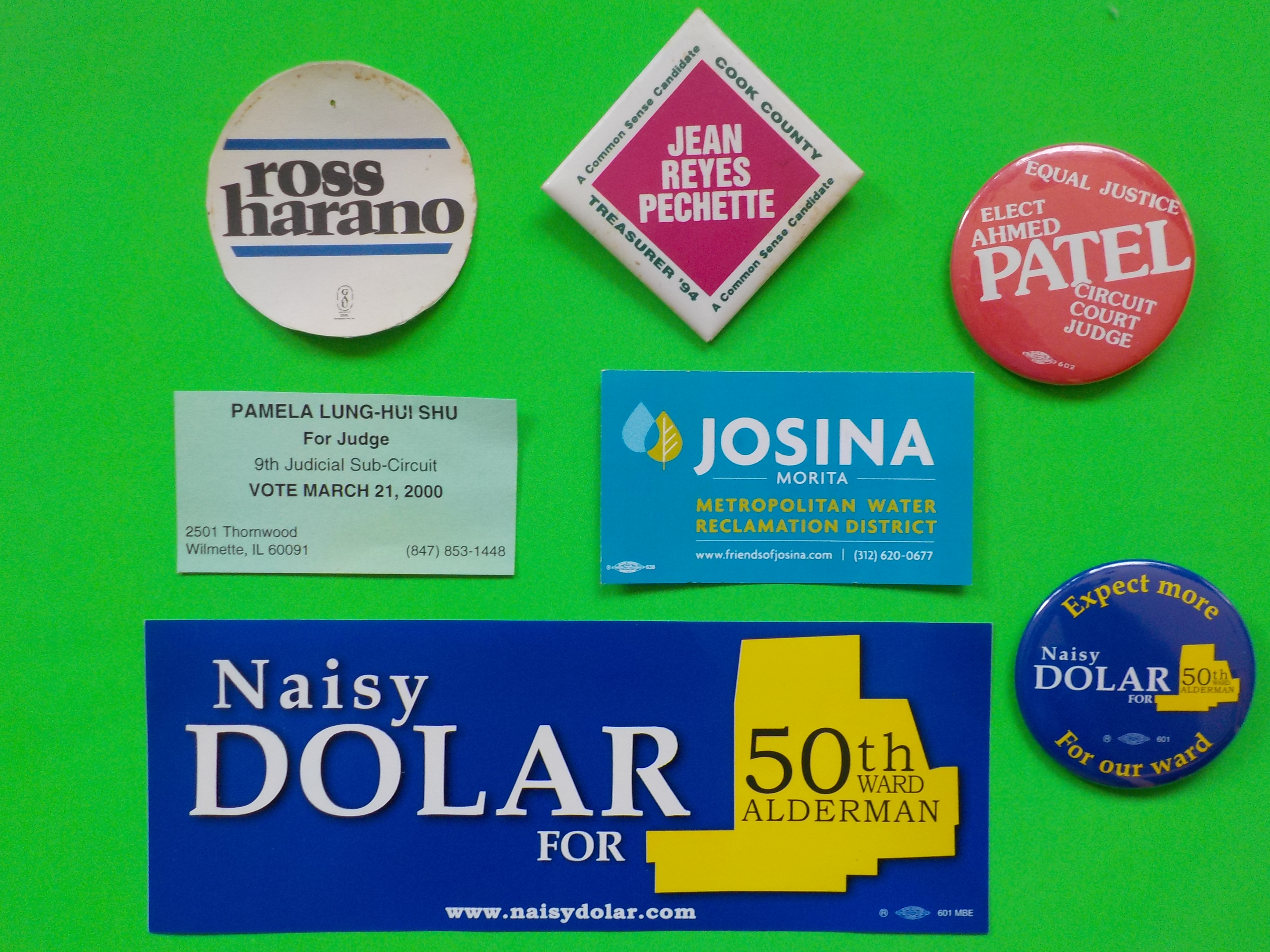
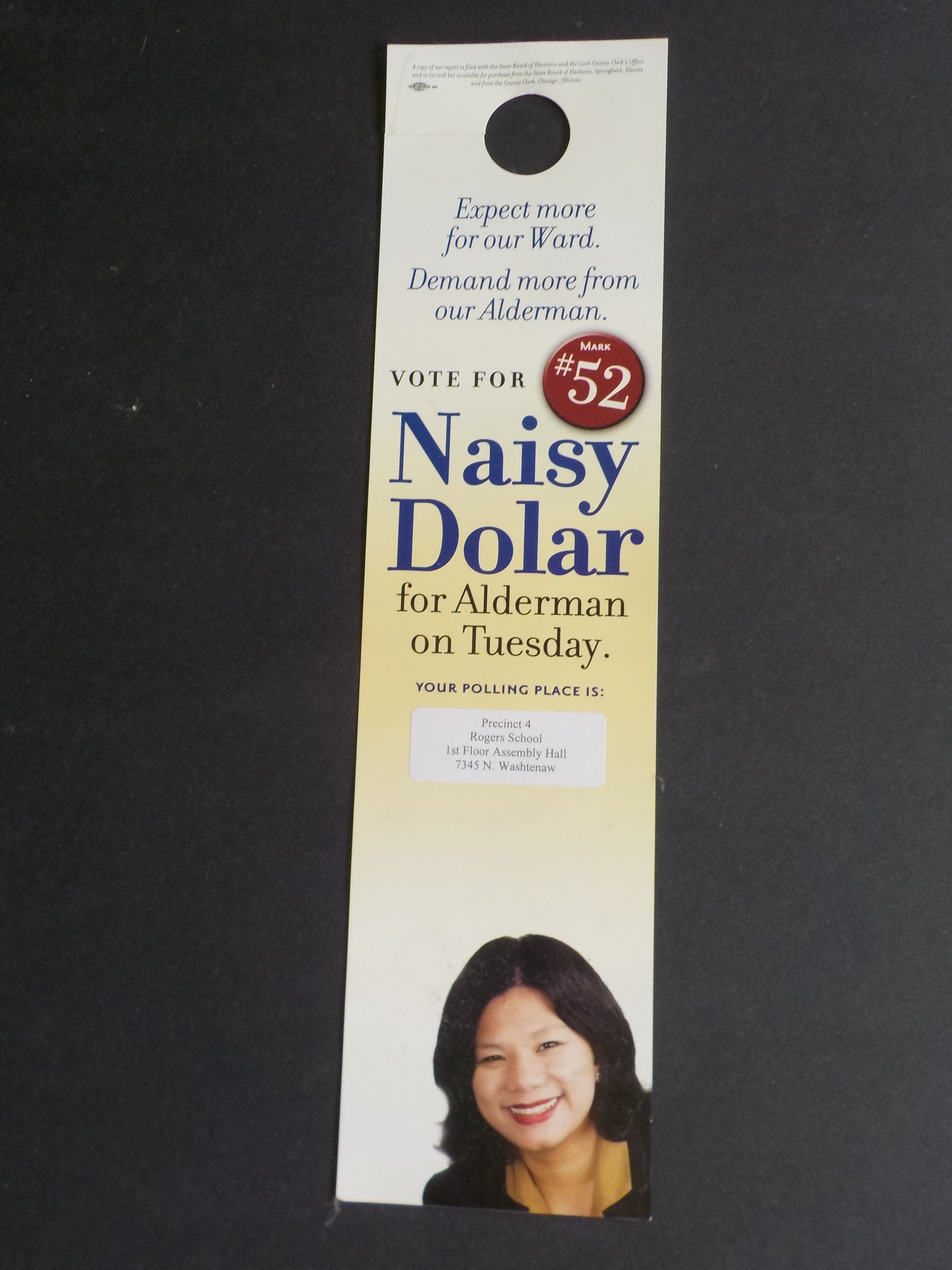
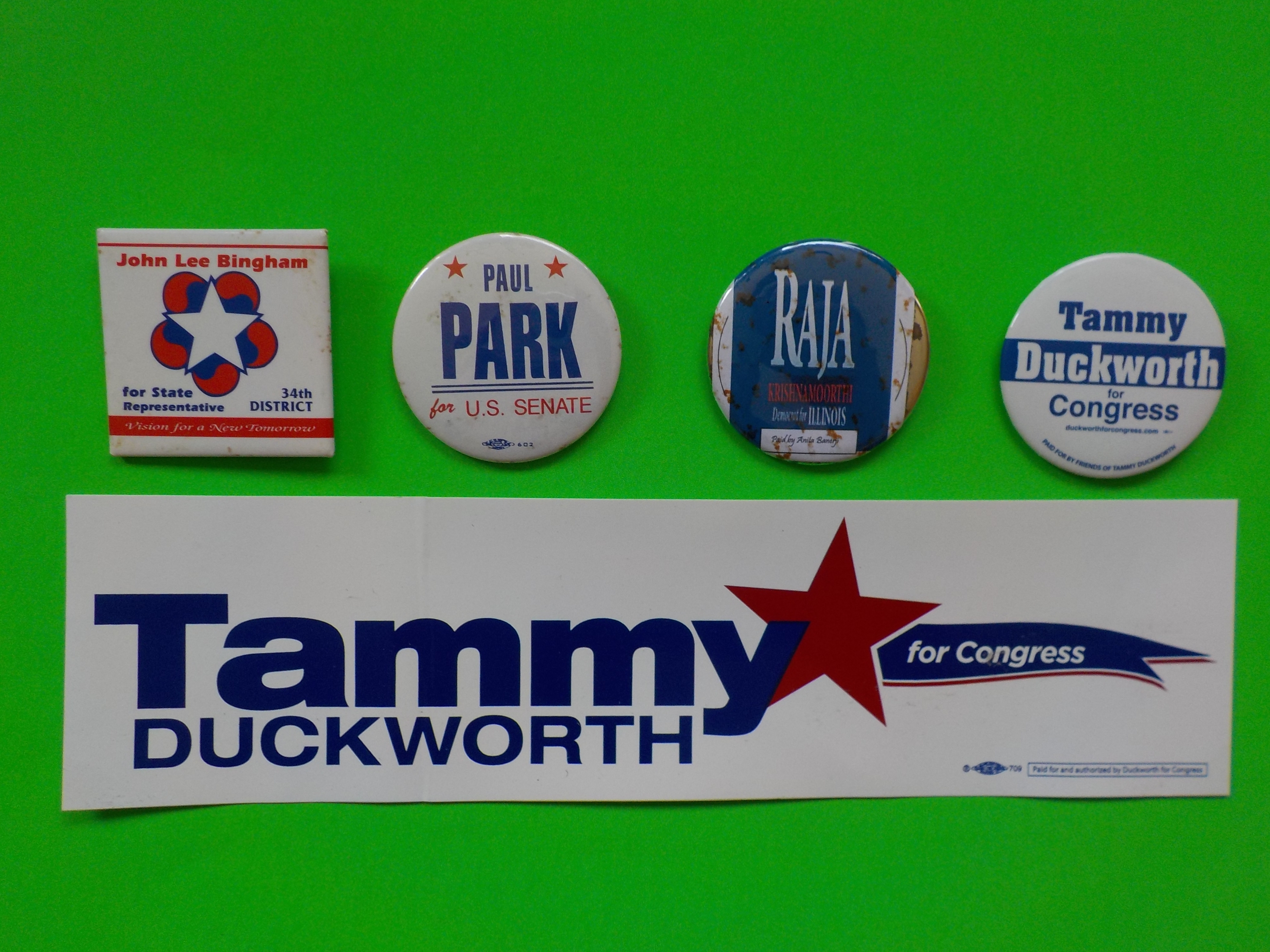
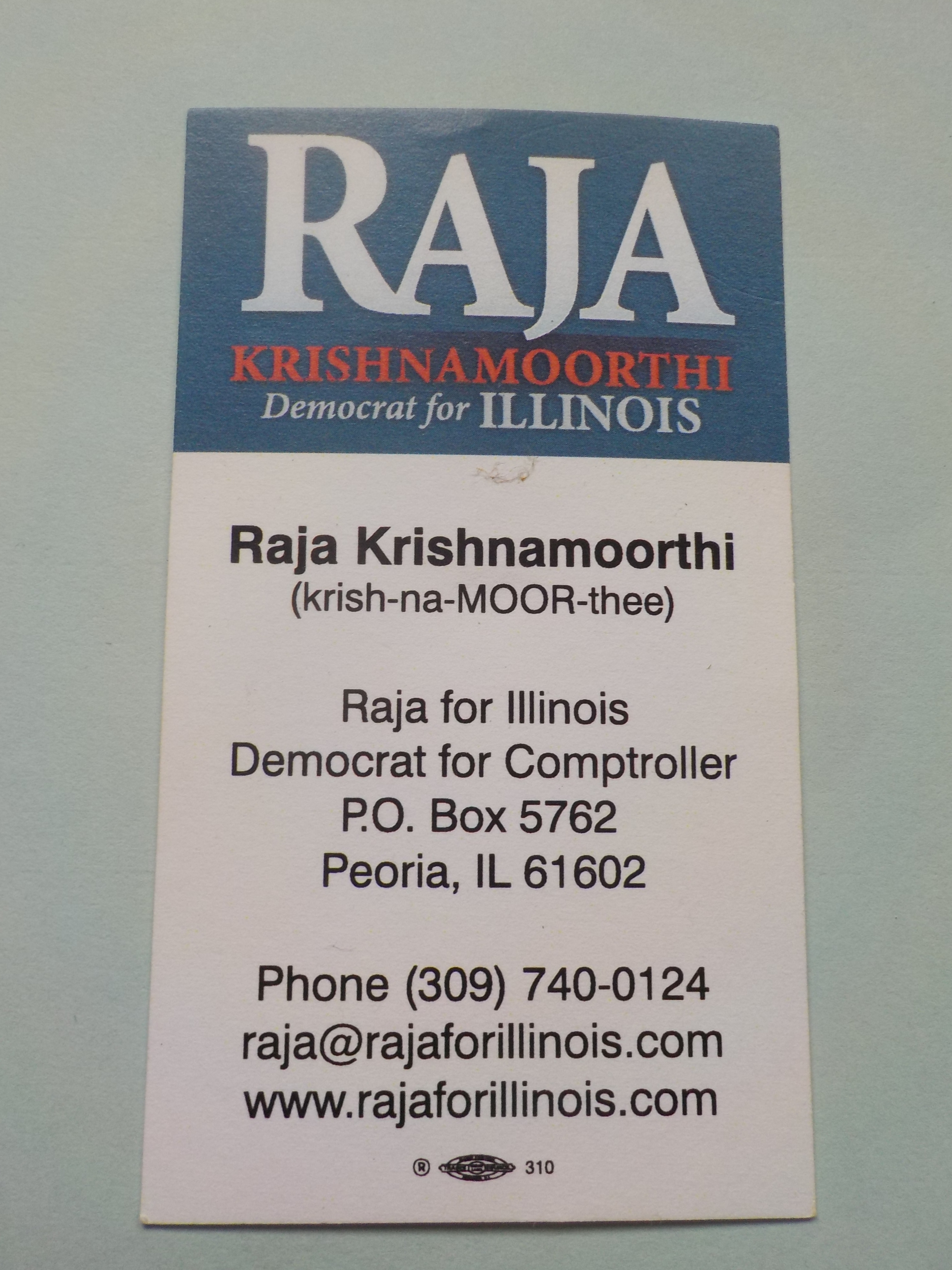
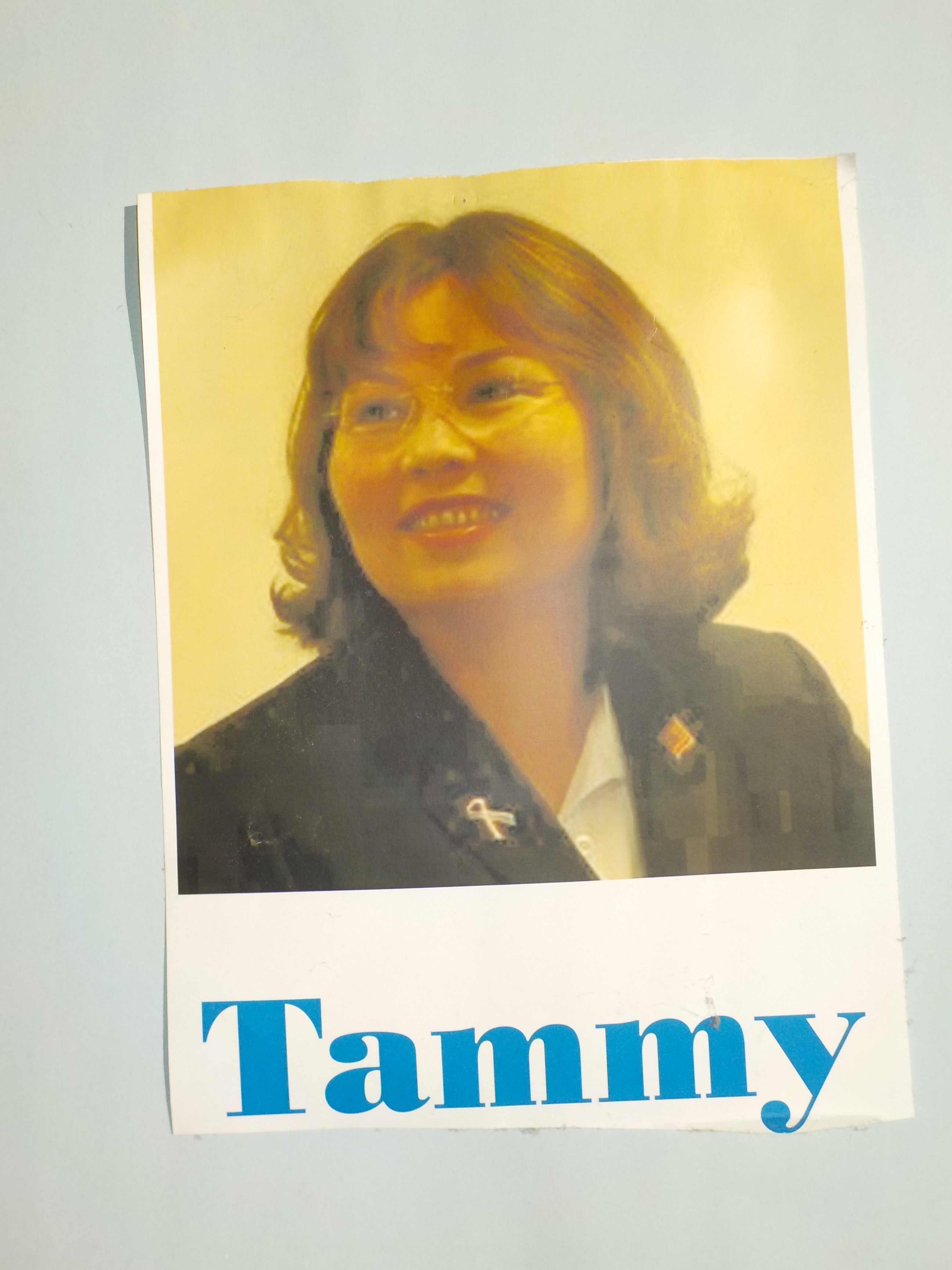
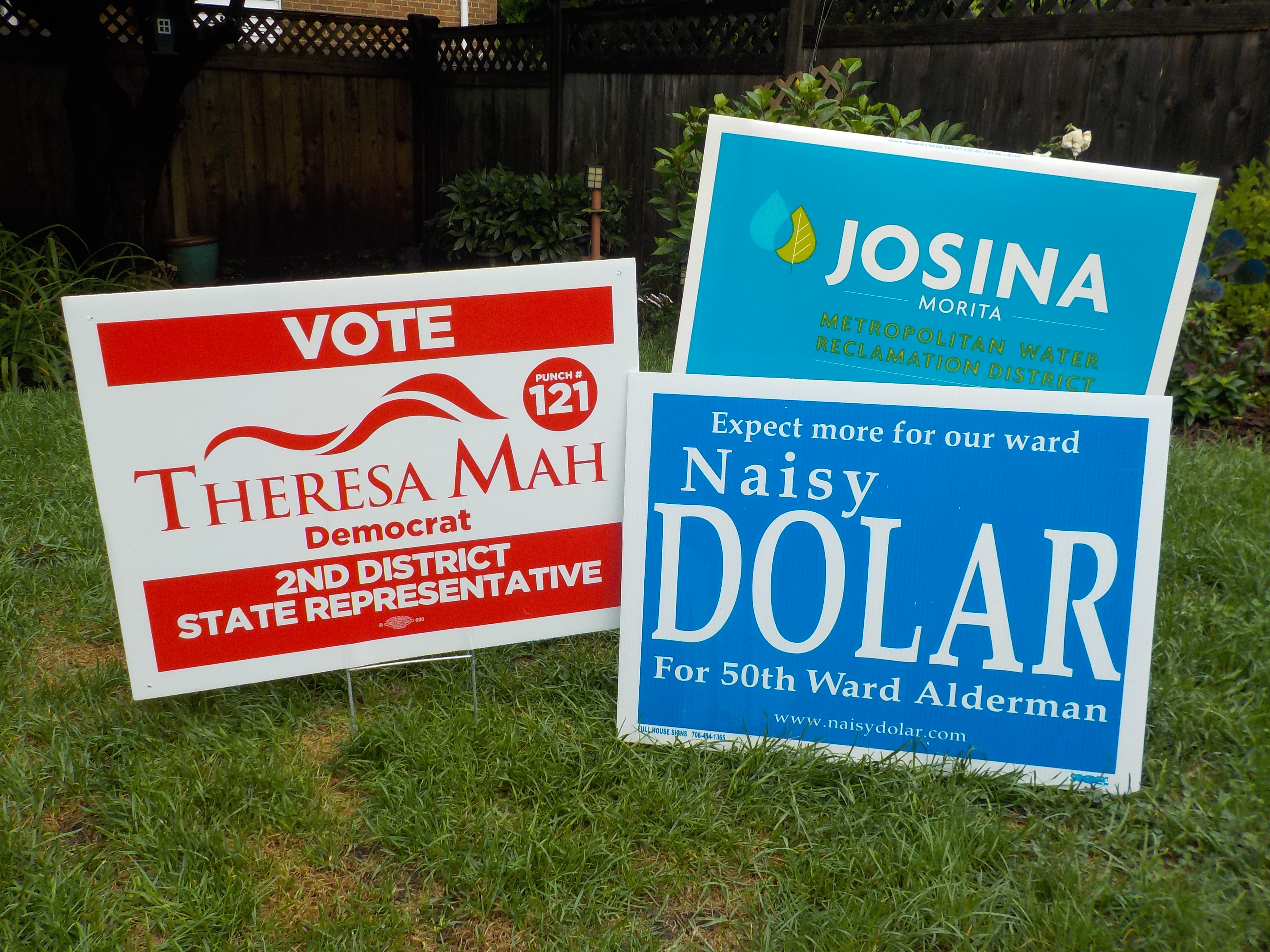 Signs of things to come
Signs of things to come
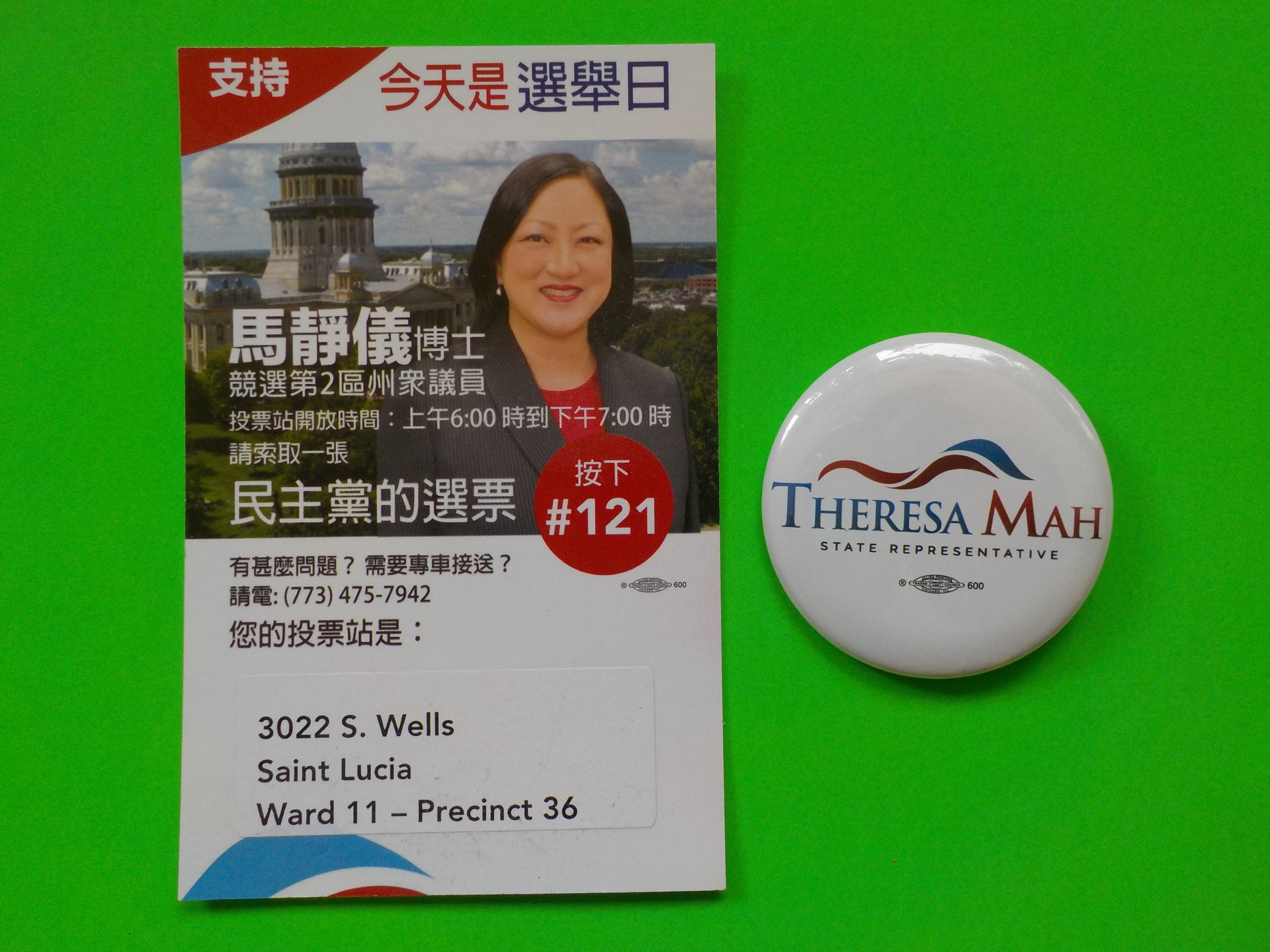 In 2016, Dr. Theresa Mah was elected the first Asian American state lawmaker. Mah (with whom this author played two seasons of 16" softball at Chicago's Union Park) had a sharp bilingual walk piece.
In 2016, Dr. Theresa Mah was elected the first Asian American state lawmaker. Mah (with whom this author played two seasons of 16" softball at Chicago's Union Park) had a sharp bilingual walk piece.
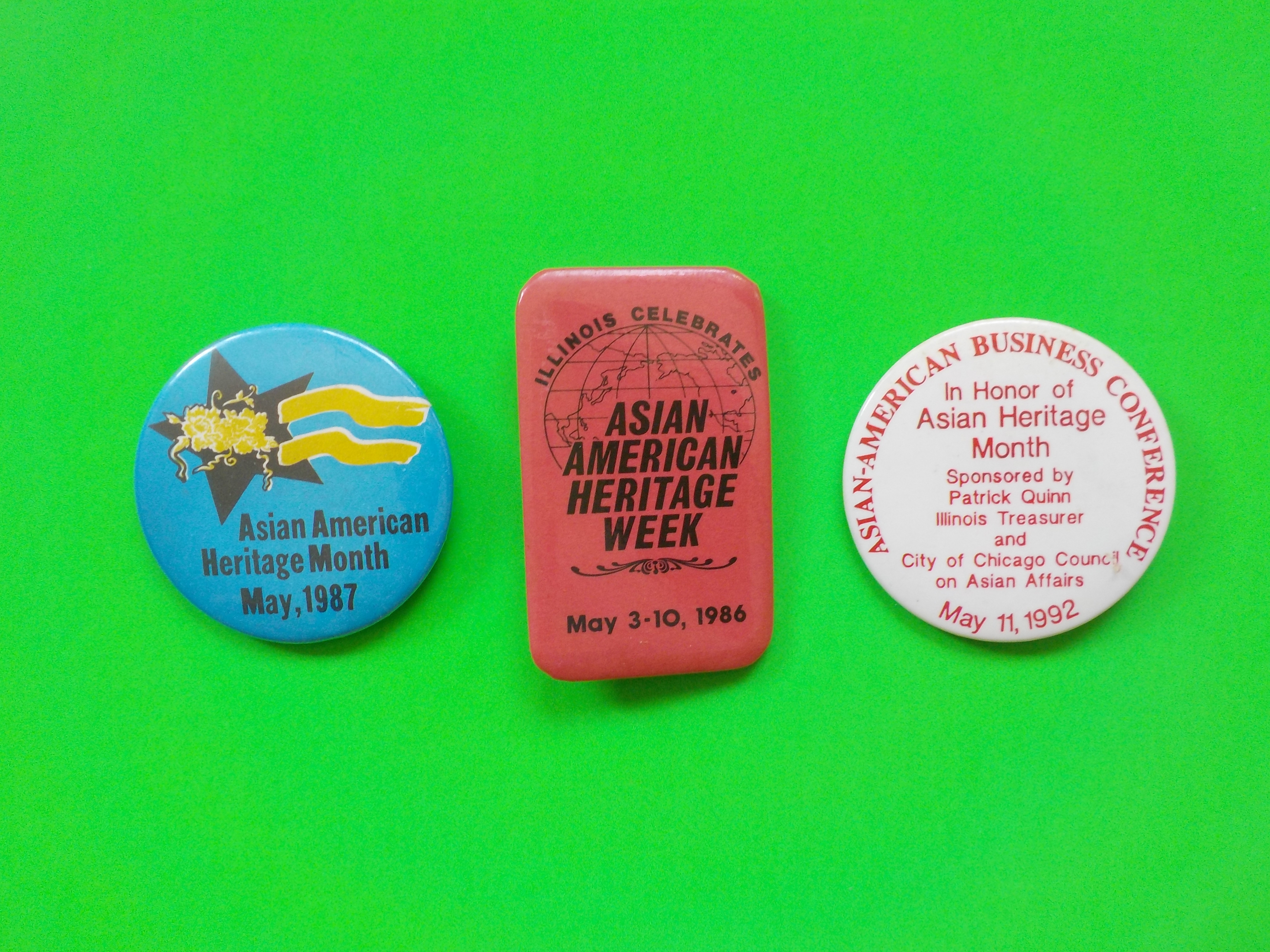
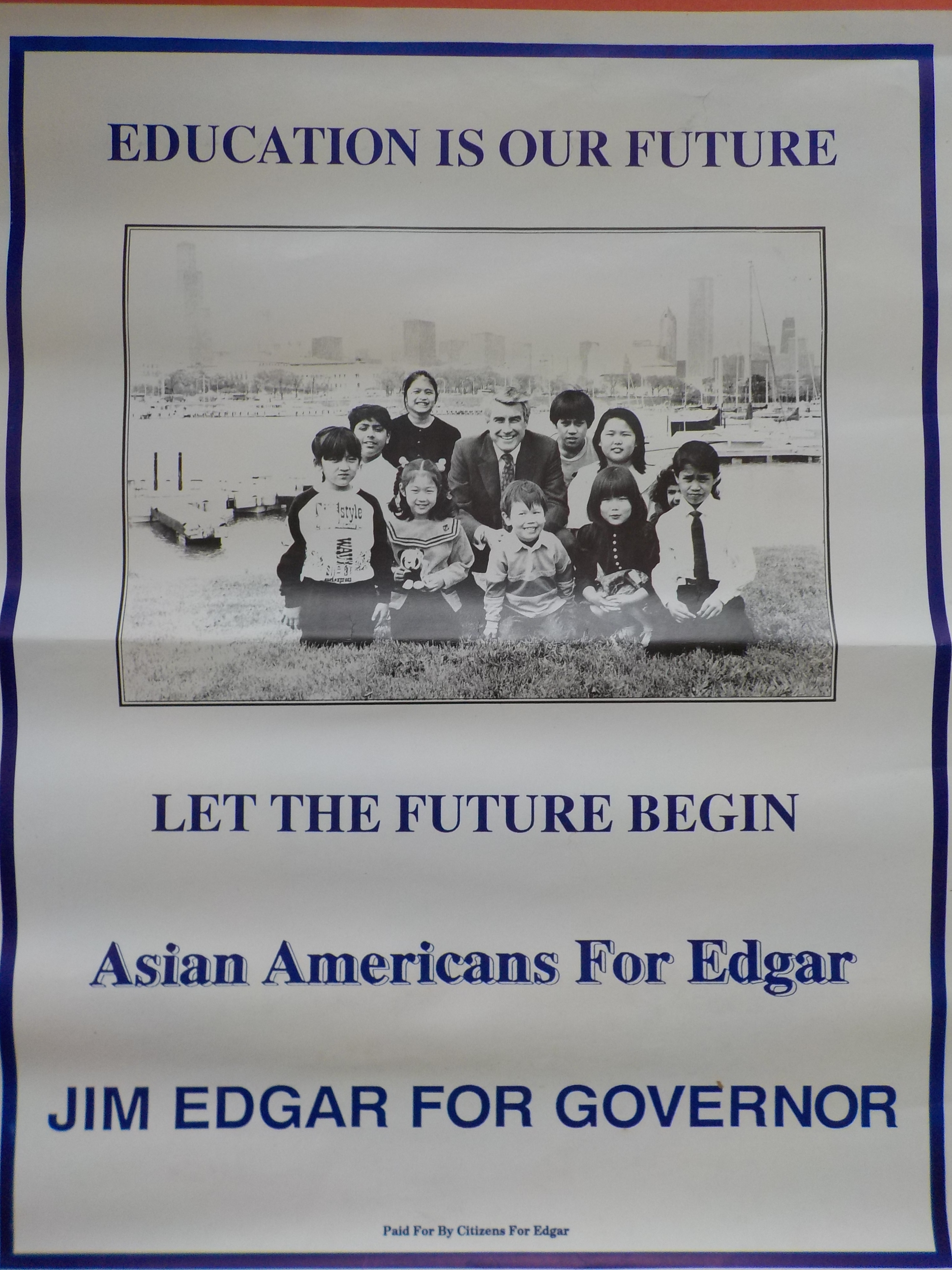
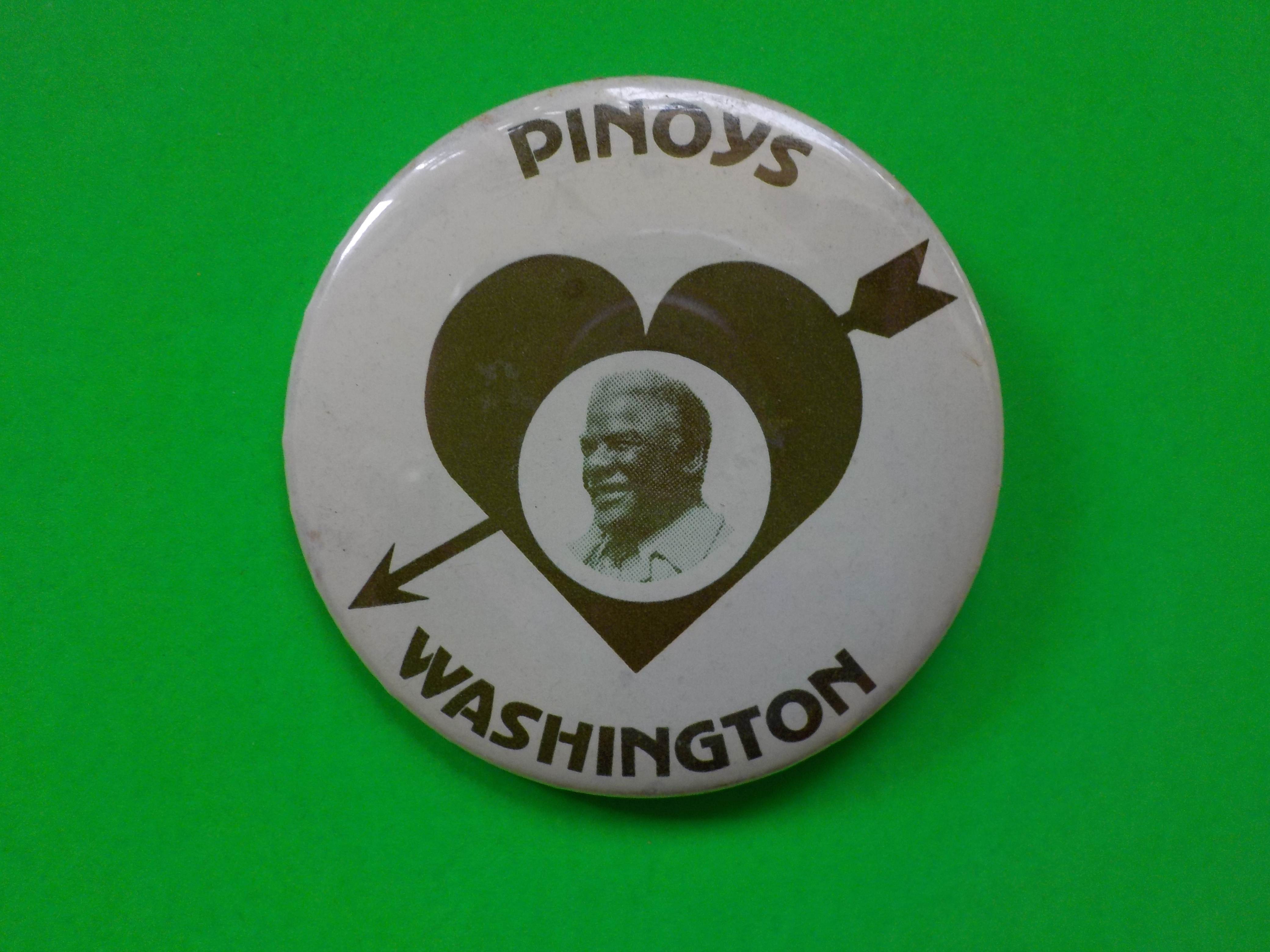
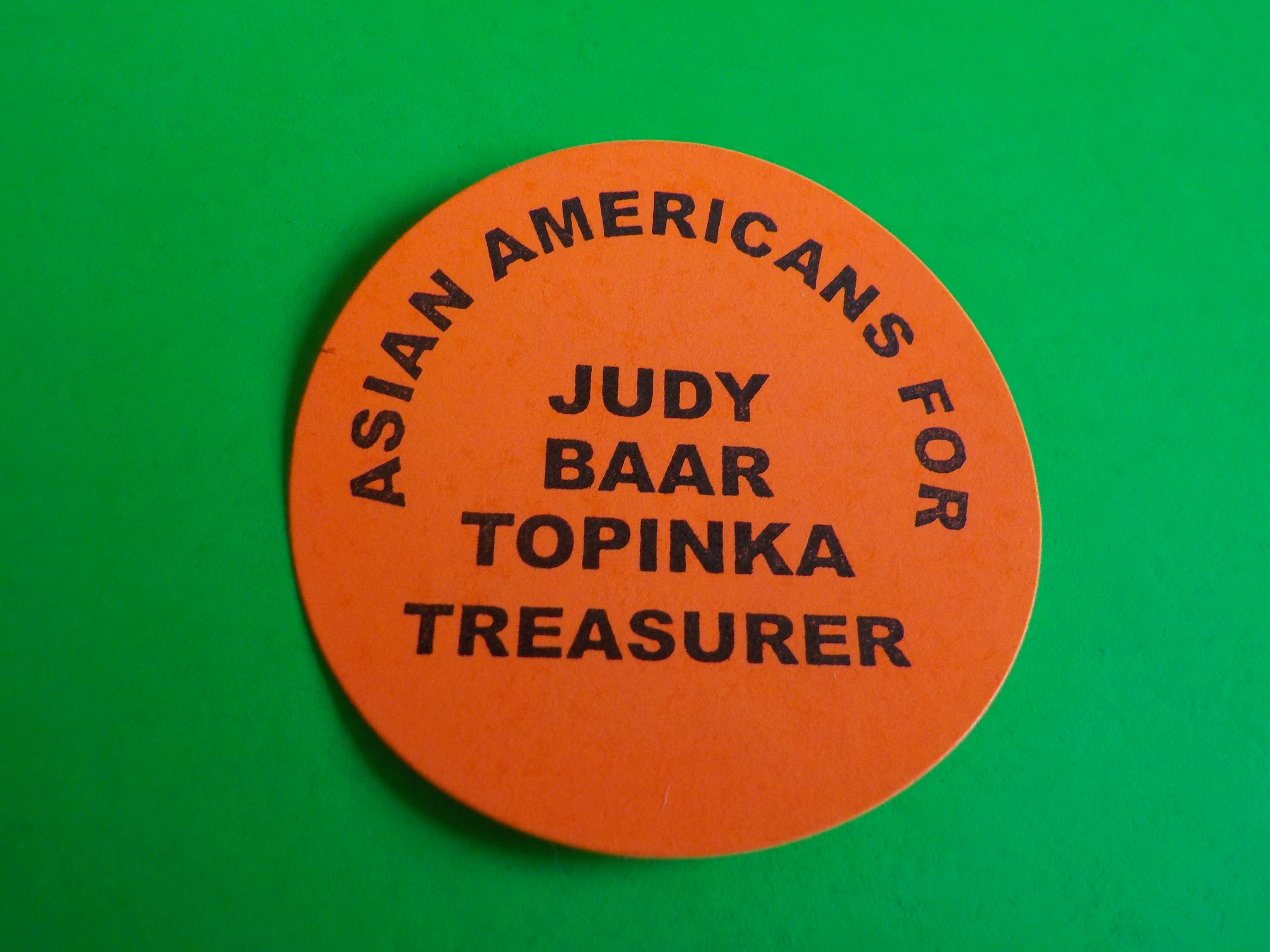
By the 1980s, elected officials were convening Asian American Advisory Councils, holding fundraisers in Chinatown and recruiting APA campaign volunteers. A few Ward Organizations enlisted Asian American precinct workers who spoke the language. By 1986, the Asian American Coalition Lunar New Year Dinner was a must-go for pols.
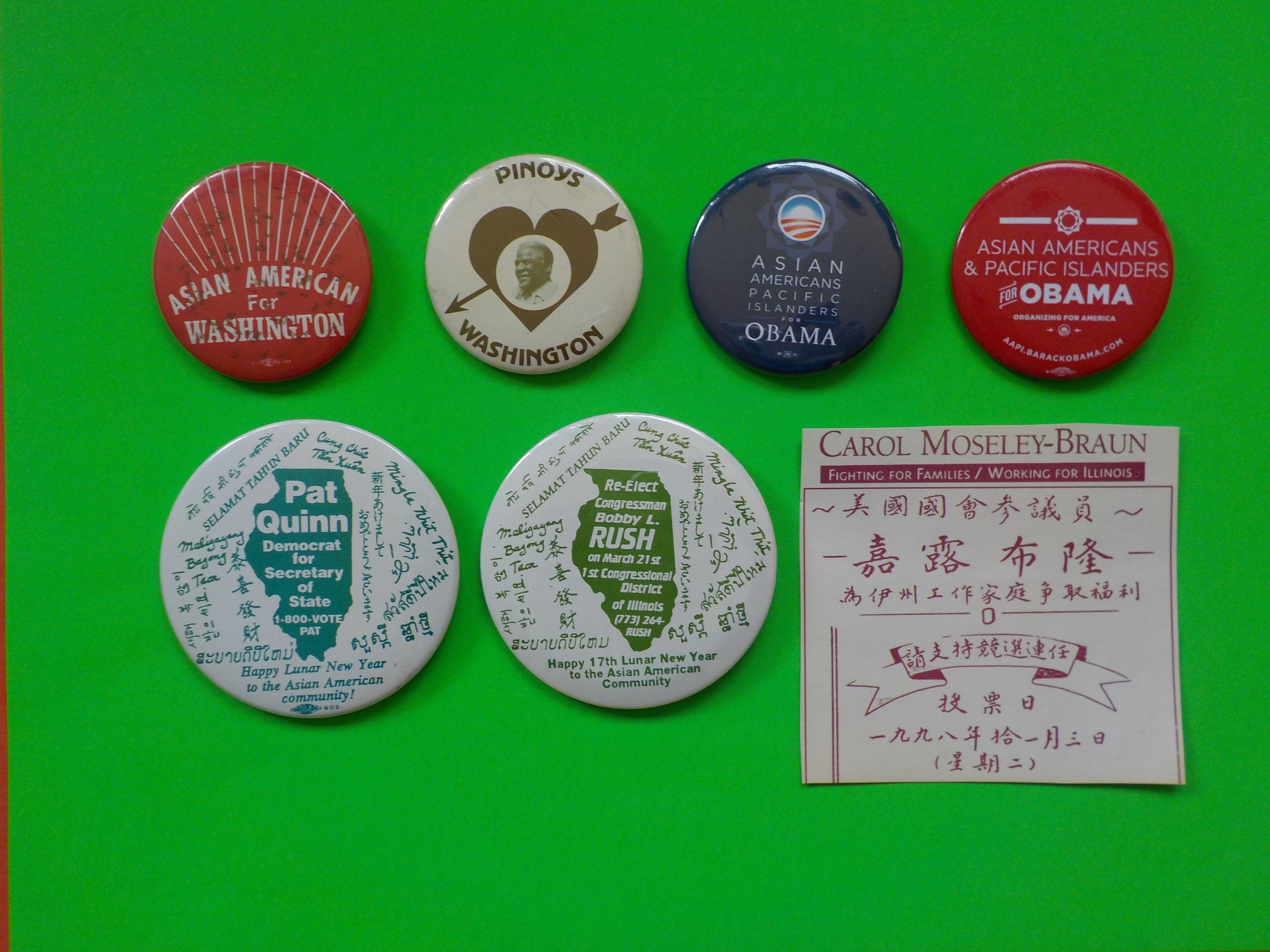
(This author designed the multilingual Lunar New Year button for Quinn's '94 SOS)
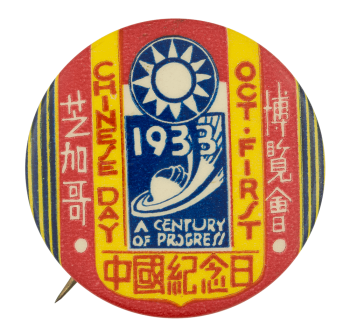
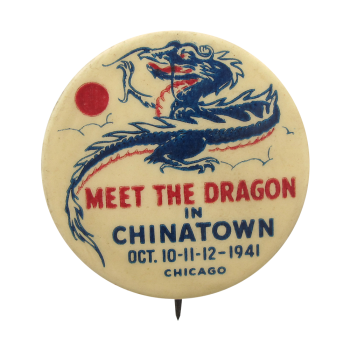
The 1933/34 Century of Progress Expo featured a replica of a Chinese village, acrobats and "Chinese Day". At right: Celebrating 30th Anniversary of Chinese Revolution. Buttons courtesy of Busy Beaver Museum.
- Claude Walker. Bicentennial-by-Buttons: 200 Years of Trailblazers, Rascals and Felons